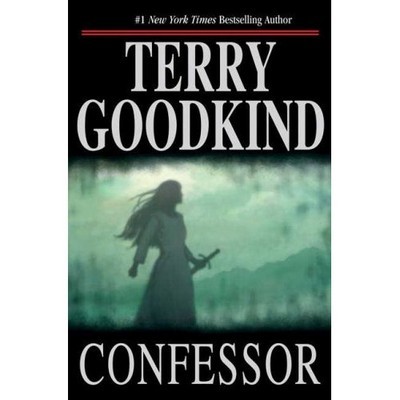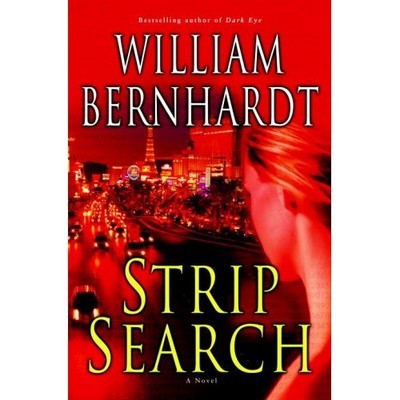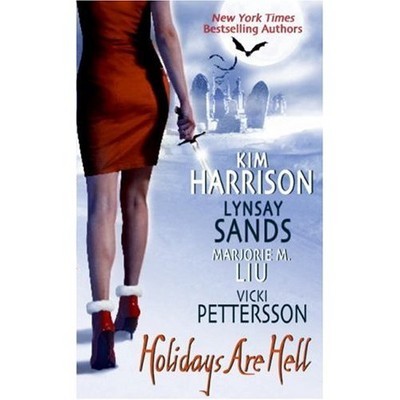Sheathing the Sword
Terry Goodkind answers the phone and asks if he can call back in a few minutes. When he does, the Southern Nevada-based author apologizes and explains that he was talking to an editor about his book.
The one he finished writing just six hours ago. The one that's scheduled to hit the sweaty palms of millions of eager readers a mere eight weeks from now. The one that will bring to a close one of the most successful series in fantasy fiction.
Nope, no deadline pressure there.
But if Goodkind is, as he puts it, "a little fried" from his last-minute sprint to deadline, he's also happy to talk about "Confessor," the long-awaited 11th and final volume in his "Sword of Truth" series.
Check that: Goodkind is ecstatic about discussing "Confessor." And even though he chalks it up to lingering effects of a serious adrenaline rush, Goodkind sounds like a kid on Christmas as he talks about how he can't wait for readers to see how he wraps up the series and (semispoiler alert) sets the stage for what will follow.
The numbers tell just how big an event the scheduled Nov. 13 release of "Confessor" will be. Goodkind says his agent figures he's sold 20 million or so books worldwide, they've been published in dozens of languages, all have been international best-sellers -- one, "Phantom," hit the top spot on The New York Times' best-seller list in its first week of release -- and Sam Raimi, who directed the "Spider-Man" movies, has optioned his books for a proposed TV miniseries franchise.
The "Sword of Truth" hearkens back to the adventure stories Goodkind loved to read as a kid -- the kind his teachers forbade him from reading but which he read anyway -- with struggling heroes and heroines making difficult decisions while facing off against evil adversaries during a grand journey. And, like the best adventure stories, at the core of his novels is a strong moral core that posits definite good and definite evil.
Yet, when Goodkind started writing "Wizard's First Rule," the first volume in the series, he hadn't intended on selling it. Rather, Goodkind recalls that he just felt "driven to write."
"I was writing to tell a story to myself," he explains. "I wasn't ever planning to do anything else. I just wanted to write a story and entertain myself and have a great time."
But after completing part of it, "I thought, 'This is really good,' '' Goodkind says, laughing. In fact, Goodkind became convinced the book could become a best-seller. He found out who the best agent in the country was, sent him a manuscript, and the rest is, for his legions of fans, history.
The success of the series has served to validate Goodkind's unshakable belief that "people are hungry for great stories" that not only entertain but are "nutritious emotionally and feed their psyche and bolster their sense of values and their feelings about life. It gives them inspiration in their own lives."
Despite the complexity of his novels, Goodkind's work tends to be shoehorned into a fantasy niche. Goodkind understands why that is, even though he's never completely bought into it.
"My books don't revolve around fantasy," he says. "My books are about characters who try to accomplish something in life and have many challenges. The books are romances, political intrigue, mystery, all those things, and fantasy is just one of those kind of elements."
Beyond that, Goodkind considers his books a departure from the British-inspired, Tolkien-esque sort of stories common to the fantasy genre. The "Sword of Truth" novels tell, he says, a distinctly "American story."
"My stories are the American ideal of life, liberty and the pursuit of happiness," Goodkind says, and are, in many ways, illustrative of "our struggle for freedom, our struggle for independence, our struggle for individual liberty and people ruled by reason."
Goodkind notes, too, that between 80 percent and 90 percent of his fan base does not read fantasy. "They're general fiction readers."
"They're meaningful stories, is why people read them," he says. "They read and turn the page to find out what happens next but, in those events, they grasp a greater meaning.
"I've had hundreds of people who write me and tell me the most inspirational stories about how they read the books and the books changed their life. They went back to school or became a doctor or did this or did that."
Goodkind says he's heard from young people who look to Richard, his hero, as a character model. And, he adds, "I've had people who have said, 'My wife was dying of cancer and, in her last months, your book made her life happy.' It's so moving to hear from people who've been through this kind of stuff."
Now, Goodkind's fans are bracing themselves for the final act in the "Sword of Truth" epic. And, if the author's barely contained excitement is any indication, they're in for an incredible ride.
"What I decided I want to do with this series is something that's never been done before," Goodkind says, explaining that his goal was to offer, in effect, "the missing link between our world and the world of myth. I wanted to bring those two worlds together.
"Oh, it is so cool," Goodkind says, laughing. "I'm kind of laughing maniacally, waiting for people to read this. I've had a huge amount of fun doing this."
Other recent books by Southern Nevada authors or that deal in Southern Nevada themes include:
• "Holidays are Hell" (Harper), an anthology of holiday-flavored stories, includes a contribution from best-selling author and former "Folies Bergere" showgirl Vicki Pettersson, whose previous genre-benders "The Scent of Shadows" and "The Taste of Night" are set in Las Vegas. Her short story, "The Harvest," serves as a prequel to "The Scent of Shadows" and, like the novels, is set in Las Vegas' supernatural underworld.
• "In the Desert of Desire: Las Vegas and the Culture of Spectacle" by William L. Fox (University of Nevada Press) -- a Burbank, Calif., author who has written much about the nature of deserts and the role of the arts in American culture -- explores the sometimes odd intersection of high art and mass entertainment, nature and fantasy, and nonprofit and for-profit enterprise in Las Vegas.
• "Minimal Damage: Stories of Veterans," by Southern Nevada author H. Lee Barnes (University of Nevada Press), offers seven stories and a novella in which veterans attempt to carve out a post-war life in a society that doesn't necessarily value them.
• "Murder on Pratas Reef," a historical novel by Henderson novelist Rick Ainsworth (VRA Publishing), revolves around the grounding of a U.S. Navy vessel on a reef in the South China Sea in 1965, the salvage operation that follows and a murder.
• "Playing the Odds: Las Vegas and the Modern West," by Hal K. Rothman (University of New Mexico Press), is a collection of insightful columns and essays by the late UNLV history professor and highly regarded social critic.
• "Strip Search," by Oklahoma-based novelist William Bernhardt (Ballantine Books), is a thriller about a Las Vegas police behaviorist on the trail of a murderer who leaves a unique calling card: obscure mathematical formulas written in the victims' blood.
• "Weird Las Vegas and Nevada: Your Alternative Travel Guide to Sin City and the Silver State," co-authored by Tim Cridland (Sterling Publications), explores, well, assorted close-to-home weirdness.
• "The Word on the Street: Homeless Men in Las Vegas," by Kurt Borchard (University of Nevada Press), an associate professor of sociology at the University of Nebraska, Kearney, is an intimate look at homeless men in Las Vegas, who talk about survival strategies, what they think of government homeless policies and even why and how they've become homeless.
WHAT'S NEXT? Fans of Terry Goodkind's work who wish to know nothing about how the "Sword of Truth" series ends should stop reading now. Seriously. Goodkind says "Confessor," the final volume, concludes the journey of Richard and Kahlan in a way that not only follows logically from what came before, but which will allow readers to view the heroes' journey from a whole different perspective. Then, Goodkind offers this tantalizing clue: "From this point, the story breaks apart. This gives birth to an entire range of books. I wish I could live another thousand years so I can tell all of the stories of different things that go out from this point." The ending of the "Sword of Truth" is, Goodkind says, "sort of the pivotal event in this world, and it's the genesis of new things that go out in every direction." REVIEW-JOURNAL




















